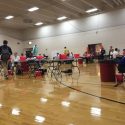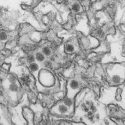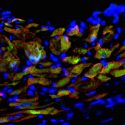UW-Madison confirms third case of meningococcal disease; free vaccine offered to students
Testing has identified meningococcal disease in a third UW–Madison student. This student is currently being treated at a local hospital. University Health Services is working with Public Health Madison Dane County to notify individuals who have been in close contact with the student so appropriate preventive care can be provided. Additional details are not being disclosed out of respect for the medical privacy of the student.
Further testing will determine if this is related to the two cases of meningococcal disease serogroup B that were confirmed in UW–Madison students earlier this month. Those students are recovering.
UHS, in consultation with local and state health officials, continues to strongly urge that all UW–Madison undergraduate students through age 25 get vaccinated against meningococcal disease serogroup B. Vaccine will be offered to students at the SERF on Monday, Oct. 31, from 10 a.m. to 5 p.m. and Wednesday, Nov. 2, from 12 to 8 p.m.
“I urge students to get vaccinated – it’s free and it takes just a few minutes,” says William Kinsey, MD, director of medical services at UHS. “We are exercising an abundance of caution to protect the health and safety of our students.”
As with other vaccines, it takes two weeks to achieve an immune response for protection. During that time, students should continue to watch for symptoms, which include high fever (greater than 101 degrees Fahrenheit), accompanied by severe headache, neck stiffness and confusion. Vomiting or rashes may also occur. Anyone with these symptoms should contact a health care provider or go to an emergency room immediately.
A second dose of vaccine, which UHS will offer later in November, extends immunity.
Meningococcal bacteria are spread through close contact with an infected person’s oral or nasal secretions. Most students are immunized against serogroups ACYW but very few students are vaccinated against serogroup B. Serogroup B vaccine has only recently become available and it is not routinely recommended.
Students and members of the campus community should also practice good respiratory hygiene – particularly during Halloween festivities this weekend. To limit the spread of this and other respiratory illnesses, students are encouraged to not share drinking cups, eating utensils, smoking materials, or cosmetics.
Graduate and professional students, students older than 25, staff members, apartment residents, visitors and faculty are not considered at increased risk for meningococcal disease.
To date, more than 12,000 students – about 41 percent of the undergraduate population – have received first doses of the vaccine.
Meningococcal disease most often causes meningitis, an inflammation of the lining surrounding the brain and spinal cord. It’s very rare, often comes on suddenly, and can progress rapidly.
Questions from the campus community can be directed to health@wisc.edu. Students who are concerned or have questions about their health, or are in need of counseling or support, are encouraged to contact UHS at 608-265-5600. For students experiencing symptoms after hours, the UHS nurse line is available at 608-265-5600 (option 1). For more information about meningitis, including upcoming clinics, visit uhs.wisc.edu/meningitis.



